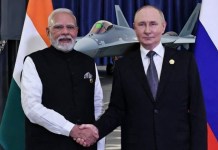Afghanistan has demanded to allow its trucks to pass through the Wagah-Attari border as a pre-condition open ambitious Pakistan-Afghanistan-Tajikistan Trade and Transit Agreement (PATTTA). Pakistan has rejected the Afghan request and dropped a World Bank-funded project of about $500 million for development of the Khyber Pass Economic Corridor (KPEC).
After India, Pakistan Gets Into Another Conflict With Afghanistan
The World Bank had facilitated a meeting of the finance ministers of Pakistan, Afghanistan and Tajikistan on the sidelines of recent spring meetings of the World Bank and the International Monetary Fund in Washington to push for earliest finalisation of the transit agreement.
The meeting was also aimed at designing similar projects, including roads and border facilities of the three countries for regional connectivity under the umbrella of Central Asia Regional Economic Cooperation. The World Bank had been pushing the KPEC as part of a long-discussed PATTTA and wanted its implementation under its ongoing pipeline project of about $2.3 billion.
Informed sources said the Afghan finance minister had taken a strong position during the meeting on the issue of regional connectivity. He said the regional connectivity did not mean anything to his country unless its trucks carrying goods to and from India were allowed to pass through the Wagah-Attari border. Therefore, there was no progress either on the PATTTA or the KPEC project at the Washington meeting.
Officials said the Planning Commission already had certain reservations over the KPEC, particularly the expansion of road and related infrastructure from Peshawar to Torkham worth around $485m. The commission believed that the KPEC project could not be taken up in isolation and would become feasible only in case of matching facilities across the Durand Line and into Tajikistan and provided a trilateral transit trade agreement was in place.
Because of the Afghan insistence on seamless access to India through the Pak-India border, the World Bank had been explained the reservations expressed by the Planning Commission and Pakistan’s intentions not to go ahead with the project for financing agreement in the near future.
This was one of the two projects for which Pakistan has declined World Bank’s financing. Another relatively small project — Pakistan Hydromet and Disaster Risk Management worth about $200m — had already been killed by the Planning Commission because it envisaged specialised bunker-type megastructures in Islamabad that could house thousands of people in case of any disaster emergency.
The sources said the World Bank had been advocating a potential portfolio of about $1.6bn to Pakistan during the current fiscal year ending in almost two months, but no more than $600m could be materialised before June 30 because the majority of the projects had not yet been approved by the World Bank board of directors.
The KPEC project envisaged a four-lane 50km expressway from Peshawar to Torkham to improve trade between Pakistan and Afghanistan and onwards to Central Asian Republics, particularly Tajikistan and Kyrgyzstan. The project was targeted to be completed by June 2024 and aimed at improving regional connectivity and promotion of tourism and private sector development as it involved an economic zone, warehouse facilities, commercial plazas and a truck terminal.
Pakistan and Afghanistan have not been able to implement the Afghan Transit Trade Agreement of 2010 as both blamed each other for its failure before the Afghan president announced in 2017 that the ATTA had expired.
Pakistan accused Afghan traders of misusing the agreement for smuggling and dumping of foreign goods into Pakistan, leading to closure of many of its industries. Afghanistan had been complaining of very stringent rules and barriers created by Pakistan’s customs authorities.
The World Bank proposed two components for the KPEC. The first component included a detailed design and construction of the proposed four-lane Peshawar-Torkham Expressway, laying of fibre-optic cables in trenches along the expressway, land acquisition and resettlement, afforestation along the expressway, technical and independent reviews and studies, according to the World Bank documents.
The second component envisaged the promotion of integration of private sector actors in Khyber Agency into global value chains with two targets — finance analytical activities required to coordinate and prioritise investments in soft and hard infrastructure in Western Greater Peshawar and assure the feasibility and develop detailed designs for prioritised investments and finance the infrastructure investments.
Published in Dawn




